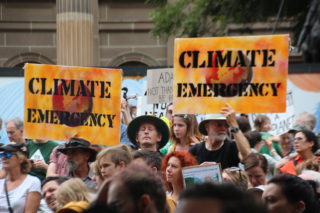-
Jared Diamond links world cooperation on COVID-19 to cooperation on climate change
Date posted:
-
-
-
Post Author
Patrick LaveryCombustion Industry News Editor
-
-
![]()
Renowned geographer, historian, anthropologist and global systems thinker Jared Diamond – author of Guns, Germs and Steel, and Collapse, amongst other works – has written a thought provoking piece in the Financial Times looking at how the COVID-19 crisis might affect the global fight against climate change. In his recently published Upheaval, Diamond examines how different nations have faced national crises, identifying amongst them 12 ‘outcome predictors’, including acknowledgement of the problem, acceptance of responsibility to take action, honest self-appraisal, and a shared sense of national identity, which makes for unity and shared action. This sense of national identity may be produced by “a shared language and culture, pride in a shared historical legacy and shared environment, or [particularly potently for facing crises] a shared common enemy”. What the world has been missing to some extent in facing climate change, Diamond argues, is a visceral shared enemy. Climate change itself, although its impacts are variously symbolised by collapsing ice shelves and the like, has lacked this visceral quality, but COVID-19, in producing deaths that are relatively easy to identify, offers it. This has flow-on effects. As Diamond puts it, “until the unprecedented danger posed by COVID-19, there has never been a struggle that united all peoples of the world against a widely acknowledged common enemy.” On top of this, it has a parallel with climate change in that all countries must take action so that other countries can be secure – i.e. a high number of cases in one country means that other countries may be infected or reinfected. Diamond’s hope is that united action to fight COVID-19 – sharing of research and learnings, collaboration on a vaccine, sharing of supplies, etc. – will create a global togetherness that is the basis for more concerted action on climate change. He sees the potential for the opposite to happen, though – the “worst-case scenario would be if we instead continued our doomed attempts to solve the virus problem one country at a time, or even one American state at a time.” Because COVID-19 is such an immediate and visceral threat, an answer to which way the world goes will be with us by the end of this year, Diamond concludes.

